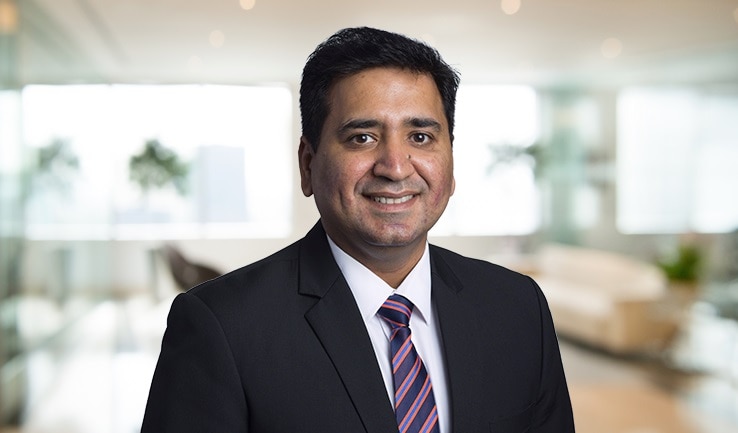HLB Mann Judd is proudly celebrating its 40 year anniversary. To commemorate the milestone, we asked some of our incredible leaders to share how they are helping HLB’s clients prepare for the challenges of tomorrow.
Kapil Kukreja’s story
My career path has been different to most accountants. When I was studying for my commerce degree, I knew traditional accounting wasn’t for me. It was only when I undertook an MBA in accounting and finance that I realised it was the risk and advisory side of the profession that captured my attention.
After I graduated, a recruiter contacted me asking if I would be interested in an audit role. I didn’t realise at the time that audit helps you to understand the processes of an organisation. While initially reticent, I ended up in business risk services division of a mid-tier accounting firm which, fortunately, was more of a risk advisory role than audit. It was fortuitous in the end as it provided insight into internal audit and advisory.
In hindsight, it was an important step in my career, but I needed to see the other side of the story and moved into industry, working in the corporate office of Toyota in Melbourne. Again, it was a really satisfying role, but the lure of public practice proved too strong; professional services is fast paced and you’re working together with a number of clients simultaneously which is very rewarding.
I’ve now been with HLB Mann Judd Melbourne for six years, working as an adviser on internal audits and conducting other assurance and consulting services. The diversity of my role means no two days are the same. It encompasses everything from governance reviews to assessing processes at the strategic, financial and compliance level. It’s a role that can add real, tangible value to a client.
My client base is predominantly Victorian state and local government organisations. The work is part assurance, part advisory (probity and risk management). It’s about identifying and providing pragmatic recommendations to mitigate potential risks to the organisation or department.
When I first joined the firm, the challenge was to grow the risk assurance part of the division and in the intervening period, it has. It’s something I’m really proud of but couldn’t have done it without the support and encouragement of the entire Melbourne firm.
HLB Mann Judd has more than lived up to expectations. The culture is very good, and your ideas and initiatives are valued and respected, both internally and by clients. It’s an open-door policy too where you can walk in to the office of a partner or the managing partner and have open discussions.
For the next generation of business leaders, I would encourage them to embrace the changing working environment.
There’s so much technology being developed and incorporated into business processes, and 90 per cent of our current client base is undergoing some form of digital transformation. It’s important for leaders – and future leaders – to commit to these changes as they will drive operational and financial efficiencies in the future (if not already).
Innovation is also key – we need to future proof ourselves. When we talk about the workforce, it’s more than one generation and each generation has different needs and expectations. We need to be more agile and take a step back and consider processes that meet business and client needs now and into the future.

About Kapil
Kapil is a director of the Risk Assurance and Consulting Division in Melbourne and has over 14 years of experience in the profession. Kapil has extensive experience in providing advisory services including internal audit, risk management, fraud investigations, Sarbanes-Oxley Section 404 compliance, cyber security, probity, and process mapping and improvement projects.
Kapil enjoys a strong personal engagement with his clients, developing a deep understanding of their needs. He is proactive in developing innovative solutions, working closely with is clients to resolve issues as they arise. He is also an avid leader on adding value and achieving corporate objectives through senior stakeholder engagement.
